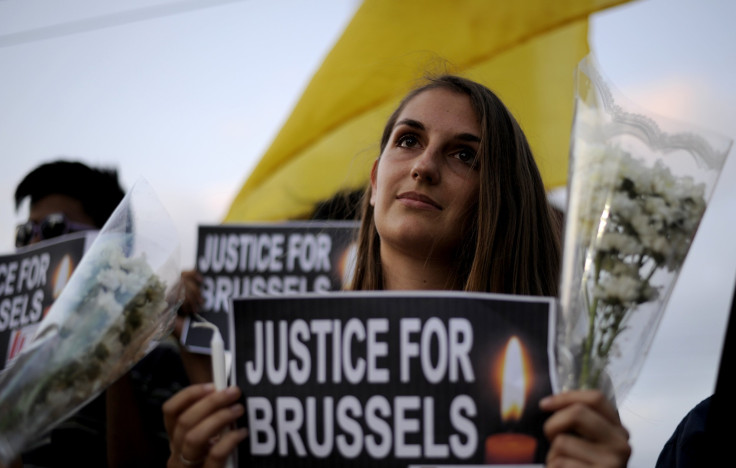China Condemns Brussels Attacks But State Media Criticize US Foreign Policy, Say Europe Seems Powerless To Stop Terrorism

HONG KONG — China has strongly condemned the terror attacks in Brussels and expressed willingness to work with other countries to combat terrorism. But in a reminder of past policy differences, Chinese state media suggested that U.S. foreign policy had contributed to the problem — and said Europe seemed ill-prepared to deal with such attacks.
In a statement, foreign ministry spokeswoman Hu Chunying expressed condemnation and also offered deep condolences to the families of those affected, saying “the Chinese people stand with the Belgians and the Europeans.” Reiterating Beijing’s opposition to terrorism “in all forms,” she said China was willing to “enhance cooperation” with Belgium and other countries to “jointly face the threats and challenges posed by terrorism.”
But the official Global Times newspaper said the attack also suggested that security was a “weak link” in Europe, which, despite its modernity, seemed “very fragile” in the face of terrorism. Europe’s “collective anti-terrorist front is more a show than a real thing,” it said — adding that despite forewarnings, Brussels had been “powerless to stop a hysterical plan becoming reality.” And it suggested that the “whole of Europe seems to be turning into a place where terrorism is raging."
The paper, which like China’s government has frequently criticized Western foreign policy and intervention in the Middle East, also suggested that Europe’s pain was “inflicted by … changes in the global political landscape,” which it linked to U.S. foreign policy. It said that thanks to the strengthening of homeland security in the U.S. after the 9/11 attacks in 2001, the U.S. had “succeeded in pushing all anti-terrorist wars beyond its borders,” and had also stirred tension in the Middle East and “to a large degree destroyed its regional architecture.”
The article, versions of which were published in both the paper's English and Chinese editions, also warned that terror attacks were pushing Europe in a dangerous direction toward a “clash of civilizations.” It said European nations were increasingly responding to terrorism with unilateral actions, while differences over refugee policy were also becoming sharper by the day: It noted the poor performance of German chancellor Angela Merkel’s C.D.U. party in recent regional elections, following her pro-migrant policies, and said the success of xenophobic ultra-right forces in some parts of Europe had “further worsened the situation for locals of immigrant descent making it easier for terrorist ideology to infiltrate... This kind of vicious circle may become hard to stop,” it added. And it suggested that with Europe already grappling with economic problems, frequent terror attacks could seriously damage public confidence. “Not since the end of World War II has Europe been so disturbed and confused,” it said.
The article also gave a reminder of past differences between the Chinese authorities and the West over terrorism: China has faced a number of terrorist attacks in, or related to, its mainly Muslim northwestern region of Xinjiang, where it says a separatist campaign has been stirred by Islamic fundamentalism. And the Global Times has repeatedly expressed anger at Western media articles seeking to explain such violence as a response to economic problems or frustration at a tough Chinese political line in the region — accusing journalists of double standards in their reporting on China, compared to their coverage of similar attacks in the West. (One French journalist the paper criticized was effectively expelled from China at the end of last year.)
The article said many people still felt dissatisfied at such articles, which it said gave “legitimacy” to terrorist violence — though it said that in the aftermath of the Brussels attacks and Europe’s “series of misfortunes” it did not want to get into a "dispute" with Europeans.
“No one should take pleasure in other countries coming under terrorist attack,” it added. "You definitely shouldn’t see terror attacks in countries you don’t like as being to your advantage.” And the article concluded with an appeal for mankind to “boldly confront terrorism”
China recently passed a tough anti-terrorism law — and experts say attacks in the West are likely to add to Beijing’s conviction that it should take a tough line toward any potential threats, whether in Xinjiang or other parts of the country.
© Copyright IBTimes 2025. All rights reserved.






















